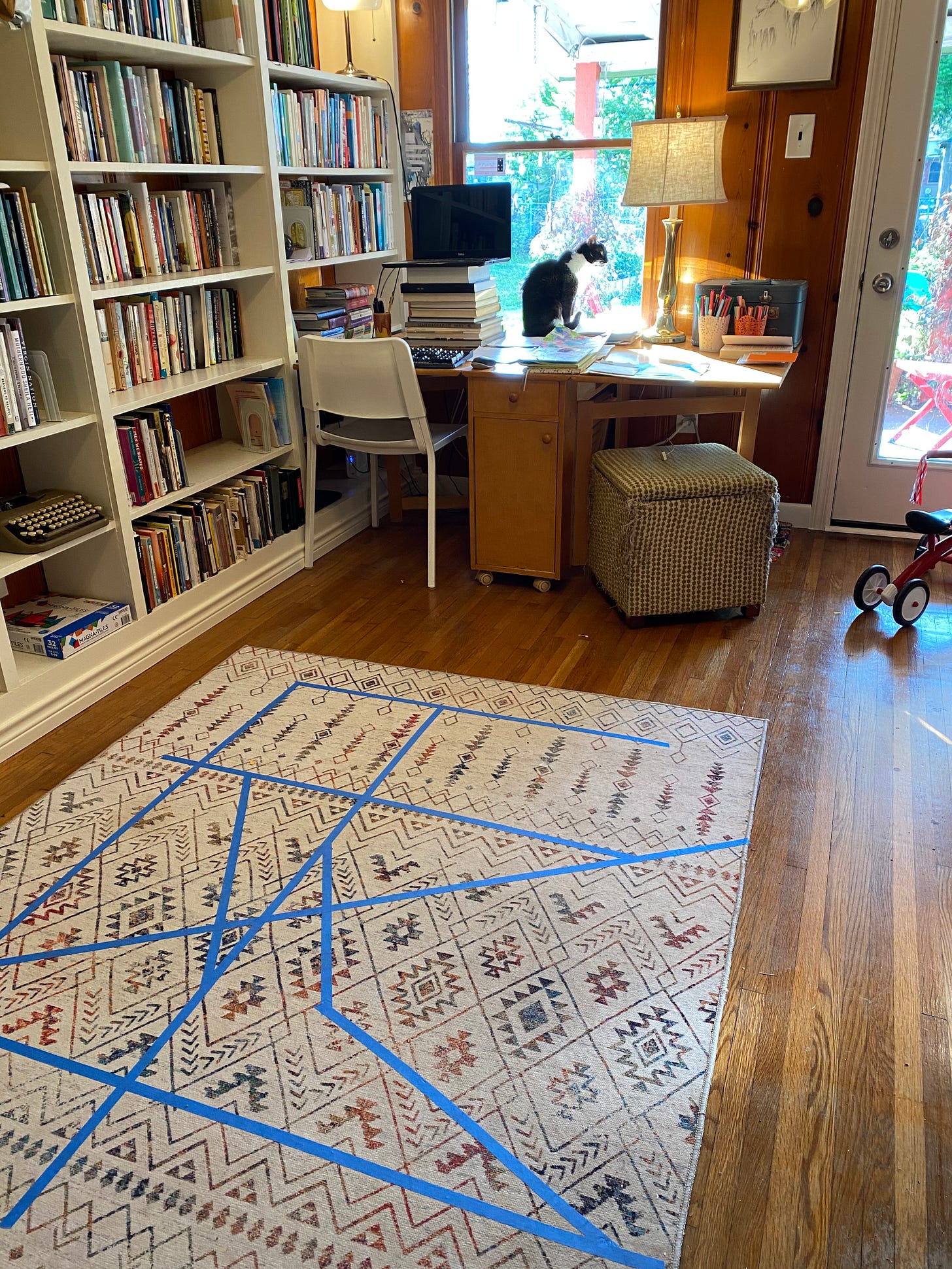Playing will help.
Exactly two weeks ago, I was ill. I’d just received the second dose of the Moderna vaccine for COVID-19, and I was one of the unlucky few who had severe side effects. I was sick enough—spiking a 100.9 fever that I didn’t get out of bed except to vomit, which I did several times in a 16-hour period. My three-year-old-son, Stanley, worried and fussed by my bedside, even when his dad told him to leave me alone.
“How you still in bed, Mama? How you can’t get up?” he asked.
I told him that I was sick, but that rest would make me feel better soon.
He thought about this for a moment. “Mama, would it help if you played?”
This was profound empathy, but it didn’t sink in until a few days later. Stanley had scraped his elbow, tripping on the uneven sidewalk in front of our house. It was a bad abrasion, the kind of scrape that oozed before it scabbed over. That night, during his bath, the water stung his wound. As I washed and rinsed his hair, and then his body, he became increasingly upset.
“It hurts. It really hurts. It hurts bad,” he repeated like a mantra. After he got out of the bath, he stood, wrapped in a towel, sobbing.
“This will help,” I said, showing him a can of Dermoplast antibacterial spray. The label said it offers quick pain relief for minor cuts, scrapes, and burns, but Stanley was unconvinced. The silver aerosol can looked too scary, too much like something from the hardware store. “If you just let me spray this on your ouchie, it’ll stop the pain.”
“No,” he screamed. “Playing will help!”
Then I thought to a few days earlier when I was sick, and that was his most sincere offer of comforting: Playing will help.
Since then I’ve been thinking about the best ways to cultivate play, to soothe my emotional pain, to lull depression, and to hush existential angst. This is also connected to the reason why I write. It’s the form of play that I know the deepest, that I gravitate toward most often like an iron filing to a magnet.
“Writing is at its best—always, always, always---when it is a kind of inspired play for the writer.” —Stephen King
All artists know there’s something both inspiring and calming when one plays for the creation of art.
It’s not limited to art, though. Digging in the garden, making a special meal, sewing, and beachcombing are forms of play I enjoy too. For my husband, it’s woodworking. The great pleasure of parenting a small child is seeing how powerful play is and being invited again and again to indulge in it.
I sprayed a burst of Dermoplast on Stanley’s scrape, which made him howl even louder. “I’m sorry. It will feel better soon. Let’s go play.”
After a quick change into pajamas, Stanley wanted to play cars. We took a roll of painters tape to the area rug in my home office and planned out a complex series of roads with intersections for the cars to drive on, and within minutes, Stanley had forgotten all about his pain.
Fred Rodgers believed that “for children play is serious learning” and I’d add it’s also very healing.
It’s a good reminder, isn’t it?
Keep working hard at playing.
What do you do to play?



Discovering a connection between playing and healing is insightful. Kudos!